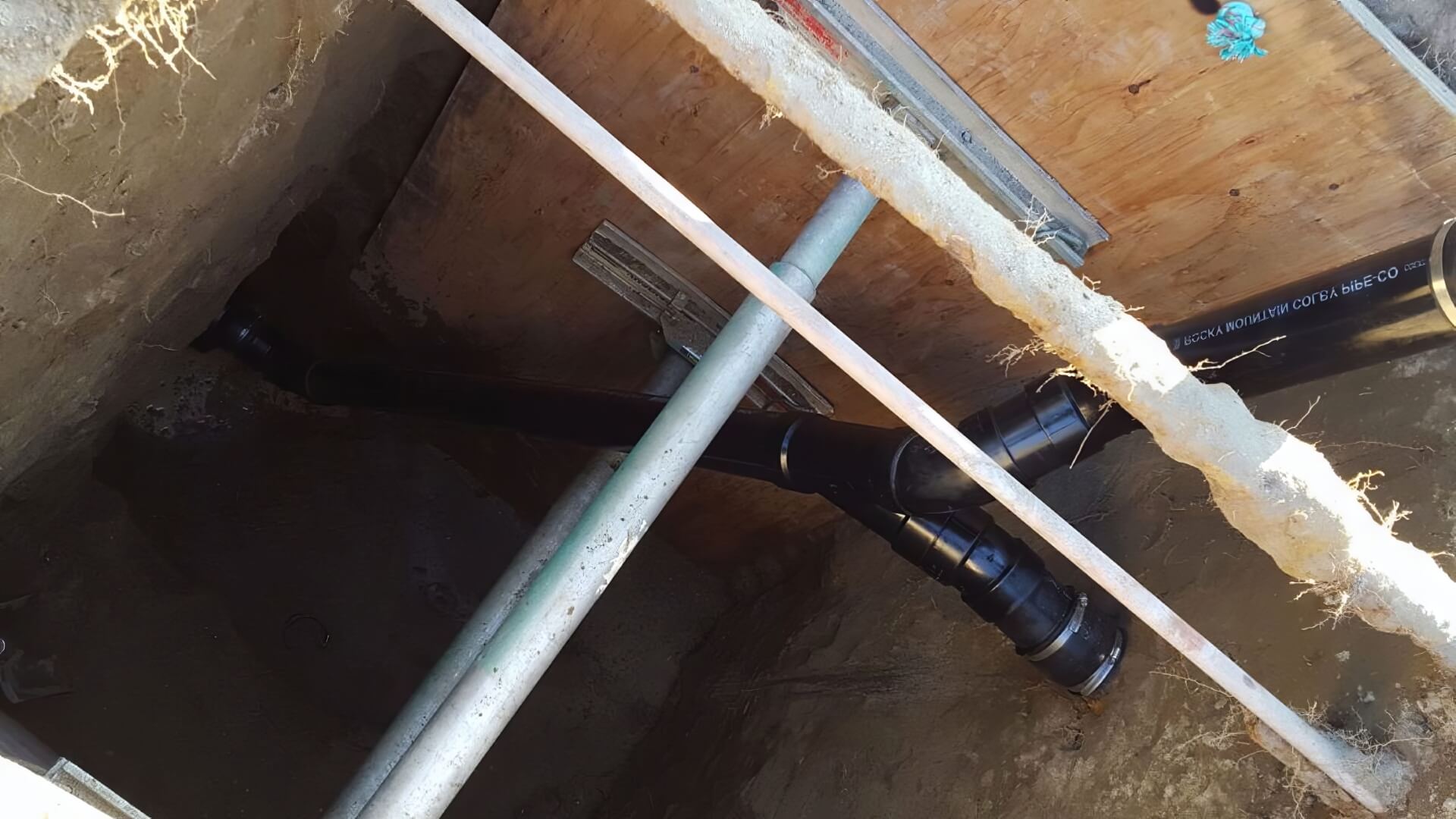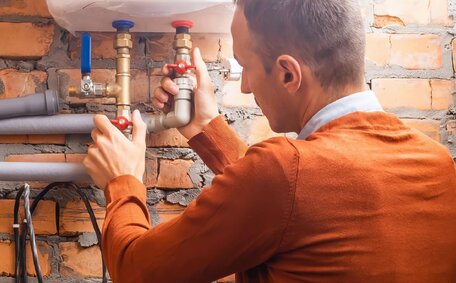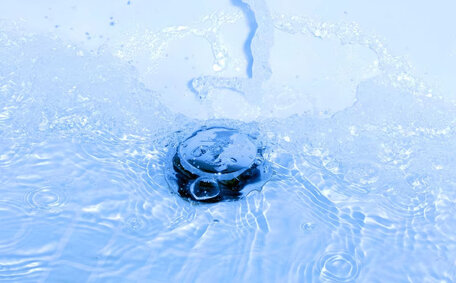Introduction to Gas Line Repairs
Ensuring the proper functioning of your gas line is critical for home safety. Gas line leaks, if overlooked, pose significant risks including explosions and carbon monoxide poisoning. That’s why immediate professional attention is essential when any signs of leaking gas arise.
Licenced gas fitters have the tools and expertise to fix leaking gas lines, stop the flow of gas, and carry out repairs to restore full safety. Being vigilant for warning signs, such as the scent of rotten eggs, enables early intervention to prevent small issues from escalating into dangerous crises.
Avoiding professional intervention by using DIY methods for gas line repairs can aggravate the issue and heighten risks.
This article unpacks the typical gas line repair process from investigation to solution. It details the necessary equipment, methodical repair steps, costs, timeframes, and the role of maintenance in prevention. Also highlighted are “dos and don’ts” for maximising safety when leaks occur. While repairs bring short-term peace of mind, only enduring diligence will ensure your gas system remains secure over the longer haul.
Identifying Signs of a Gas Line Leak
Several key signs should prompt immediate attention to determine if the gas line your property has may be compromised:
- Rotten egg smell - Natural gas distribution companies add a sulphur scent so even small volumes are detectable. Any whiff of rotten eggs calls for urgent inspection.
- Hissing noise - Listen closely near gas appliances and along the pipeline for an unmistakable hissing sound. This indicates escaping gas.
- Dead plants/grass - If vegetation surrounding gas lines starts dying off without explanation, it may signal a hard-to-notice underground leak.
- Dirt blowing - Small cracks in exterior gas pipes can spew faint flows of gas that displace soil. Pay attention for disturbances or spraying dirt near the line’s path.
- Flames/pilot lights changing brightness - If burners have shifting shades of yellow or orange, or pilot lights fluctuate, a steady gas supply issue may exist.
- High and recurring bills - Review usage costs monthly. Spikes may reflect gas line leaks allowing gas to dissipate before being burned.
Never disregard even minor signs or scents; shut off the gas valve and seek a professional’s help immediately. Any possibility of a leak warrants actions to make sure the main gas supplies are turned off and calls for qualified technicians to inspect pipes thoroughly using detection gear. They will pinpoint the leak source and, if necessary, perform repairs or confirm safety, offering reassurance.
Dangers of Gas Leaks
Gas leaks prompt a necessary urgent response due to critical health and safety risks. As gas builds up to dangerous levels, any source of ignition can trigger catastrophic explosions. And inhaling fumes can result in potential gas poisoning dangers, including symptoms like headaches and nausea, or even unconsciousness and fatality.
LPG (liquefied petroleum gas) is especially dangerous since, unlike pipeline natural gas, this type of gas can be heavier than air. Gas sinks and pools in low spots, creating greater risk because ventilation cannot easily dissipate dangerous accumulations. Whether dealing with natural gas or LPG leaks, immediate action upon detection is crucial.
Never assume small breaks seal themselves.
Ventilation is helpful but does not resolve gas leaks or eliminate the persistent threat. Remaining alert protects what matters most – your health and safety in your house.
Disconnect any nearby electrical power sources that could ignite sparks and await technician confirmation of repair completion.
When to Call a Professional
Gas systems fall exclusively within the realm of licenced specialists. DIY gas repairs are illegal due to the high skill requirement and extreme risks involved. Upon detecting any potential gas leaks, promptly enlist the services of a licenced gas fitter for inspection and rectification.
Calling experts offers other advantages too. Advanced detection tools allow for precise leak location, aiding in effective pipe repair and supply restoration.
The depth of inspection and accuracy of repair could take time but produces lasting solutions, reducing future risk. Technicians also manage documentation and approvals to help manage leaks future risks, all through official channels on your behalf.
Note that even if problems arise outside regular business hours, emergency plumbers are available 24/7 to respond promptly. The more rapidly you fix a leaking gas line, the less damage and safer your home remains. Gas networks are complex with no room for error - have confidence in leaving repairs to qualified professionals.
Safety Precautions When Repairing a Gas Leak
When detecting any gas leak your immediate action plan should prioritise safety before attempting repairs. The first step is to switch off main gas supplies to halt the gas flow, then you’ll need to open doors and windows to ventilate the area. You’ll need to avoid turning any electrical devices on or off, as switches can spark explosions in gas-filled environments.
Eliminate all ignition sources like candles or cigarettes.
Technicians wear protective gear, including gas masks, to prevent inhaling toxic fumes.
They employ leak detection solutions and specialised tools for safe handling of gas lines during diagnosis and repairs. Ventilation dissipates the added rotten egg odour over time, diminishing the gas smell even as risks continue lurking.
If you have no plumbing expertise, avoid the urge to try resolving the issue yourself. Leave all repairs strictly to qualified gas fitters with the accredited training, equipment and experience needed to complete the work safely. They follow detailed procedures for locking off gas mains, pressure testing pipes after fixes, and requesting network authority approvals to restore supply post-repair.
Well-intentioned tampering often worsens conditions, escalating the urgent need to fix a leaking gas line your house may have and further compromising safety.
Stay alert even after technicians declare line leaks repaired and repairs complete. Regular professional checks promote ongoing safety.
Continue to monitor near appliances and your gas meter for any lingering odours that suggest further work may be needed. A few preventative maintenance steps you can take include keeping the outdoor gas metre clear of obstructions, avoiding planting trees/shrubs near the gas line, and monitoring usage costs for unexpected spikes potentially indicating new leaks.
Step-by-Step Process for Repairing a Gas Line
Upon detecting a gas leak, the repair process commences with an inspection to pinpoint the leak’s exact location and ascertain the required repairs. Technicians use leak detection solutions, pressure gauges, and pipe sealing materials to address the problem.
The main steps include:
- Turning off the main gas line valve to halt escaping gas flow
- Ventilating the area thoroughly before investigation
- Applying soapy water along pipes to spot bubbles that indicate leaks
- Pinpointing the source of the leak via sounds and an electronic gas detector
- Excavating safely, if necessary, to access the affected pipes
- Cleaning and preparing pipe edges once the break is exposed
- Sealing gaps properly based on pipe type and location
- Conducting additional leak tests, then proceeding to reconnect the supply and re-establish system pressure
- Requesting official approval to reactivate gas post-repair
Technicians adhere to strict safety protocols throughout the gas leak repair process. Relying on their expertise mitigates risks when fixing these crucial components, ensuring the integrity of your gas lines is efficiently restored.
Assessing Damage and Replacing Gas Lines
When a gas leak occurs, technicians perform a thorough assessment to determine if repairs will suffice or if replacement of the gas line is necessary. They evaluate factors like:
- The pipe’s age, type, size and condition
- The leak’s location and extent of damage
- Presence of corrosion or threats to structural integrity
- Potential for future disruption and risk
Inspections utilise leak detection gear, pressure tests, and visual/camera pipe exams. Experts recommend replacement rather than repair when cracks or holes are extensive, corrosion severe, or the cost of repairs prohibitive. Newer polyethylene pipes offer greater longevity compared to old steel options.
Sectional replacements are the preferred repair solution for minor leaks or localized damage. Technicians replace damaged sections, ensuring all new pipes and joins conform to code with appropriate seals, gaskets, and fittings. All repairs aim to restore total system integrity and enhanced protection against future leaks across your entire gas network.
Pressure Testing and Reconnecting Appliances
Once gas line repairs are complete, technicians always conduct pressure tests to validate no further leaks exist. Pressurised air or nitrogen gets pumped into isolated sections of pipework. Experts then use electronic gas detectors and leak solution to double check seals are airtight.
If any drops in pressure occur, it indicates remaining leaks to address. The process repeats in a lockup test-fix cycle until results prove pipes hold steady pressure. Only then do technicians restore actual gas flow.
Appliances like hot water systems, ovens, and gas heaters need reconnecting and reigniting of pilot lights. Each undergoes individual leak checks via the same leak solution method. Burner flames should emit a clean blue light without yellow tips, sparks, or uneven shapes.
Technicians observe appliance function for 20+ minutes, re-testing connections if anything seems questionable. You may smell very minor gas initially as residual fumes clear.
Importance of Regular Inspections and Maintenance
Regular inspections and ongoing maintenance are critical for identifying potential issues with gas lines before they escalate into hazardous leaks. Industry experts recommend having your gas network checked annually as problems can develop gradually over time.
During inspections, licenced technicians utilise specialised leak detection equipment to thoroughly assess all pipework and gas metre connections. They check for concerning signs like corrosion, cracks or damage that may compromise integrity. Even small leaks spotted early can get sealed before posing serious risks.
Technicians also service appliances, clean components, and ensure optimal function. Having experts adjust pilot light flames, test pressure lines, and assess flame shapes/burning patterns maximises efficient operations.
Routine servicing mitigates the likelihood of future breakdowns and substantial repair expenses. Recognise that gas networks consist of extensive, often concealed pipes and valves.
Any minor parts needing replacement get addressed promptly as well.
When Gas Line Replacement is Necessary
In some cases, attempting to repair a damaged gas line is insufficient, and replacement of the entire gas line becomes necessary. There are several key indicators that may warrant full replacement:
- Advanced corrosion - If pipes show extensive rust, pitting, or deterioration, repairs may not adequately reinforce the gas line’s integrity. Replacement is safer.
- Old or damaged materials - Steel or iron gas pipes are more prone to leaks. Upgrading to polyethylene piping is advisable if existing materials show inherent weaknesses or flaws.
- Frequent or recurring leaks - Numerous leaks in a short time period despite repairs likely indicates systemic issues. Comprehensively installing new gas line piping reduces future leakage risks.
- Major external damage - Impact damage from excavations/digging, exposure due to soil erosion, ground shifts, etc can rupture gas lines beyond basic repairs. This necessitates a full line replacement.
Your licenced technician will advise if your situation warrants complete new gas line installation based on detailed inspection of the line’s current condition. In emergency leak scenarios, immediate repairs may be urgent before arranging wider replacements. For gas lines with recurrent issues, full replacement is generally the most wise long-term solution.
Utilizing Professional Plumbing Services
Having a local, trusted plumber handle gas line issues can significantly ease concerns. The team at Ryde Plumbing bring decades of combined expertise inspecting pipe systems, detecting leaks, and performing uncompromising repairs to restore safety.
Our licenced gas fitters utilise advanced equipment to accurately locate damage and determine the most appropriate fixes based on foundational assessments. We handle all facets of repair coordination end-to-end, liaising with relevant authorities so you avoid headaches. And our workmanship guarantees provide lasting confidence.
Available 24/7 for emergency callouts, we make it our priority to respond rapidly whenever gas leak alerts sound. We apply all critical safety protocols to minimise risks until the repairs are finalised. And our preventative maintenance gas line inspections incorporate the latest technology to catch issues before they escalate.
For the gold standard in gas line repairs, replacement, or routine servicing, email or call the experts at Ryde Plumbing today. We also welcome online appointment bookings for consultations at your convenience.






